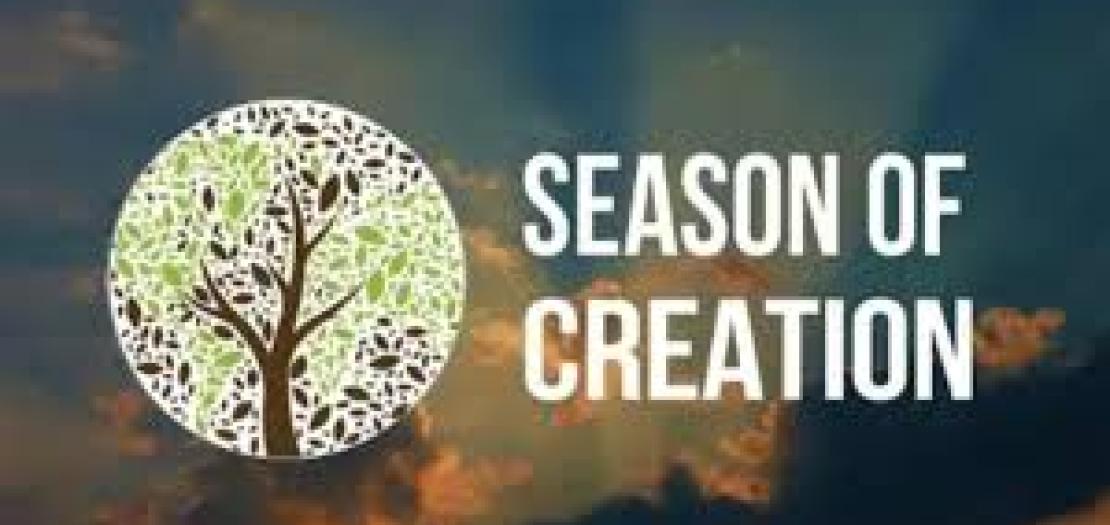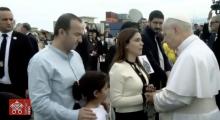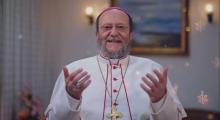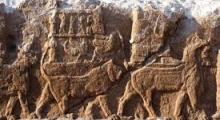Issued by the Catholic Center for Studies and Media - Jordan. Editor-in-chief Fr. Rif'at Bader - موقع أبونا abouna.org

"O Most High, all-powerful, good Lord God, to you belong praise, glory, honor and all blessing. Be praised, my Lord, for all your creation…" How great is the beauty of your home, O God, and how great is the work of your hands!
With Saint Francis of Assisi, the Patron Saint of Ecology and the Canticle of the Creatures, we praise and glorify the Lord, thanking Him for His gifts, and rejoicing in His creatures. But wait! Do we truly rejoice in God's creatures while His creation groans in pain? Do we truly hear the cry of the earth and all that is in it?
Indeed, our common home is under threat! This is a bitter truth that we cannot ignore, especially as God's creation today faces enormous environmental challenges due to many climate, social, humanitarian, and economic crises casting their shadows over the planet Earth.
The "Season of Creation," which falls between September 1 and October 4 of each year, rings the alarm bell, raising its voice loudly, calling on everyone to pray and work hard to protect the environment and preserve the creation.
"Peace with Creation" is the theme of the "Season of Creation" for the year 2025. This is a long-awaited peace that the people of the Middle East and the world yearn for. Addressing the environmental issue has become an urgent necessity today in order to move towards this path of peace, towards truth, justice, and stability.
Absent Peace
The Ecumenical Steering Committee for the Season of Creation, which includes the Middle East Council of Churches (MECC), chose the theme "Peace with Creation" and the symbol of “Garden of Peace”," based on Isaiah 32: 14-18.
According to this year' “Season of Creation” guide, which the Middle East Council of Churches (MECC) translated into Arabic as every year, the data explains that the Prophet Isaiah presents in his Chapter a devastated creation devoid of peace, especially with the worsening injustice and the severing of the relationship between God and humanity.
Through the image of destroyed cities and barren lands, the Prophet Isaiah depicts the consequences of human activity on Earth. This is in addition to the image of animals moving easily and taking over places that were once human habitation, as if human settlement had deprived them of sufficient space.
Furthermore, the “Season of Creation” guide explains that God's design for creation is based on justice and peace, but human sin hinders this, leaving creation in a state of desolation. Hence, the Prophet Isaiah describes the impact of human alienation from creation. The image of the abandoned and destroyed tower and castle in Isaiah symbolizes that God ultimately thwarts war. In this context, the guide notes that peace is more than the absence of war.
In fact, creation today faces many human activities that have led to its destruction, particularly with unsustainable lifestyles, excessive consumption, ongoing pollution, and a culture of wastefulness both locally and internationally. Therefore, the guide mentions that today, more than ever, some human activities take the form of war against creation.
A Call to Peace
Amidst all the environmental crises that worsen daily, and amid the wave of injustice shaking the earth, a legitimate question remains: Have humans forgotten that they are called to live in peace?
In the Holy Bible, God calls us to be peacemakers and to work for a just and sustainable community based on the Lord's Teachings, in addition to embodying peace in word and deed with all of creation.
In this context, this year's "Season of Creation" guide calls on all the earth's inhabitants to intercede with God and respond to the cries of communities suffering from the loss of their lands and livelihoods due to wars, climate change, land grabbing, or unsustainable practices.
The guide indicates that the Holy Spirit guides us towards ecological repentance and a deeper understanding of our universal family. It emphasizes that peace with creation requires effective steps, particularly through repentance, restorative justice, and the re-strengthening of relationships between humanity and the Earth, between humanity and other creatures, and between humanity and God.
Amidst all the initiatives, calls, and Prayers presented, God's peace remains the most sacred gift, manifested through justice, solidarity, reconciliation, and harmony with creation.
Therefore, Man bears a very great responsibility toward creation and all of God's creatures, a responsibility that can only be fulfilled through patience, understanding, and awareness.







